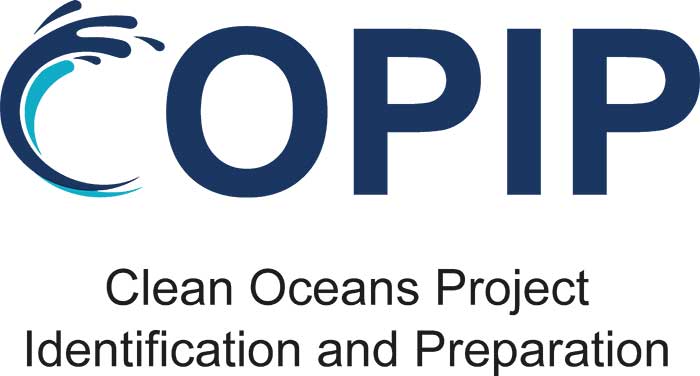Supporting transition from collection of mixed wastes to segregation of waste at source
Uncollected waste piled on road reserves, residential and public areas are common incidences in the County of Mombasa. However, the County Government of Mombasa (CGM) administration and residents are slowly coming to the realization that waste recovery through recycling is a good measure to ease the pressure on environment including the ocean, create decent employment opportunities and expedite the post covid-19 recovery. Over the years, efficient waste recovery efforts are hindered by lack of an organized collection system as well as collection and transportation of mixed wastes.

Source: County Government of Mombasa department of Environment, Waste Management and Energy[1]
Target sub-counties in Mombasa
The Clean Oceans Project Identification and Preparation (COPIP) acknowledges that waste collection is a critical step in managing waste. As part of the preparation of Mombasa Solid Waste and Stormwater project, the COPIP team has proposed to implement a pilot project on separate collection of the dry and wet waste/the 2-bin system in Likoni and Mvita Sub-counties. Likoni is predominantly a low-income neighbourhood while Mvita comprises both middle income and high-income neighbourhoods. Therefore, this will offer a good platform to assess citizens’ behaviour about the various collection systems including the level of participation, quality of the waste collected and financial incentives.
Why the 2-bin pilot project will be unique
COPIP will provide about 1000 litter bins for separate collection of the dry and wet waste, and electric tricycles for transportation of the wastes specifically in the informal settlements with poor road infrastructure. Besides, COPIP will also support public awareness through a documentary and edutainment to promote pre-collection activities e.g proper handling, processing, and storage of the waste before depositing it to the separate bins. The responsible organizations or youth associations will collect and transport the waste to relevant facilities, e.g. dry waste to the MRF and organic waste to the composting facilities.

Photo credit: Klaus Buchholz

Author: Joanes Odero


